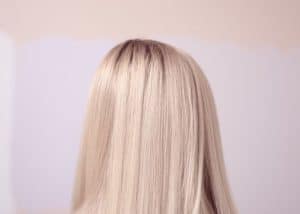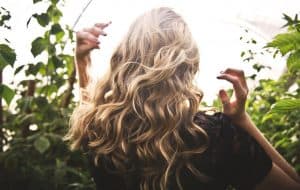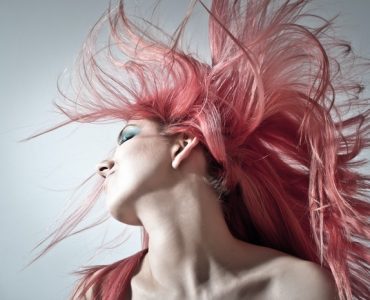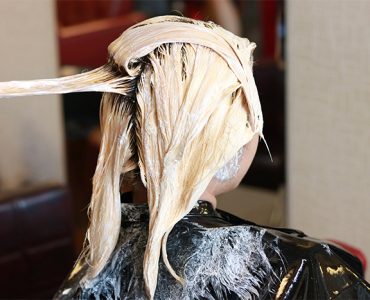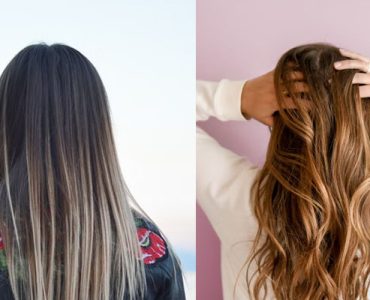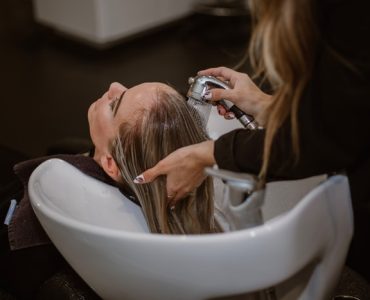Curls are lovely but there are some undesirable curls, specifically those unnatural and unruly curls at the ends of your hair.
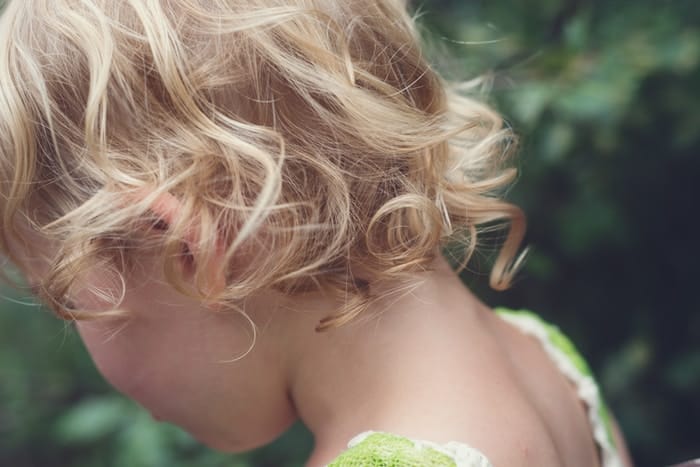
Why does my hair curl at the ends in the first place?
Sadly, there is no single answer to this mind-boggling question because there are many causes, from hairstyles or cuts to hormonal changes, genetics, and so much more.
Take a look at the most common reasons why your hair behaves abnormally that creates that disheveled appearance that no one wants in the first place together with tips on how to fix the issue.
Changes in Climate
Did the seasons change recently? Have you moved to a place with a dry climate from a region with a humid climate or vice versa? Is it windy outside lately?
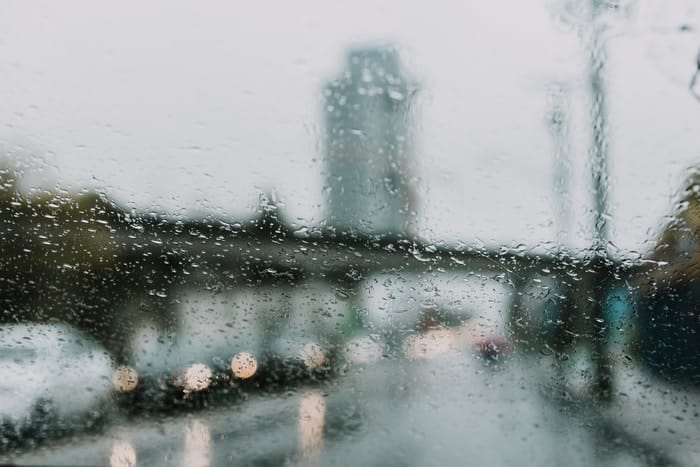
These things can all affect your hair and make the ends curl outwards.
Your hair may suffer from a lack of moisture if there are dryer climates in your area. This can then make your hair more at risk of split ends and even other damages. Those dreaded splits ends are the main culprit behind ends that flick or curl outwards.
Conversely, if there are humid climates in your area, it is highly likely for your hair to curl because of hydrogen that bonds with the water molecules and proteins present in your hair.
Read This Next:
Stress Level or Hormonal Changes
Hormonal imbalances can also make your hair curl outwards since this can affect your hair texture or even lead to hair loss.
If you are going through menopause or pregnancy, these conditions can both lead to hormonal fluctuations that can alter the growth of your hair.
Similarly, if you have high-stress levels, your hair may also flick outwards as a result. Higher levels of stress mean that your system will have hormones such as cortisol that can cause growth impairment of the hair follicle.
Dehydrated or Dry Hair
Your hair will be healthier and happier at the same time if your hair is properly moisturized and hydrated. It will be less likely for your hair to curl or flick outwards if you always maintain its well-conditioned state.
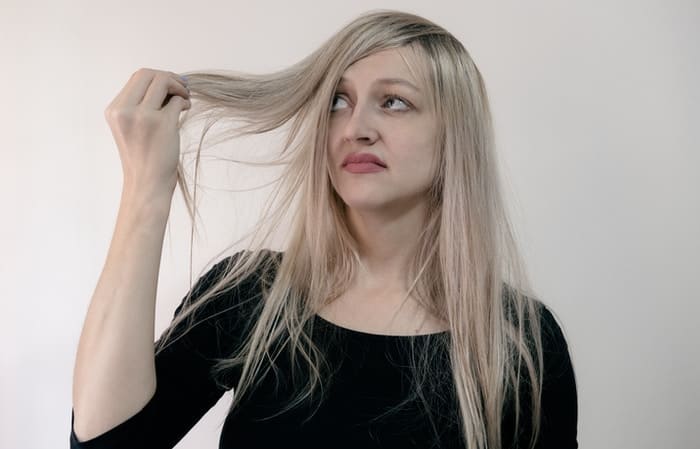
Excessively Colored or Bleached Hair
If you have the habit of coloring or bleaching your hair regularly or you rely too much on styling tools that use heat, this can increase the risks of causing damages to your strands.
In particular, bleach can lead to serious frizz and breakage, resulting in more damage-prone dehydrated strands. This can then affect how your hair curls that can make its ends flick outwards.
Your Haircut Doesn’t Suit Your Hair Type
The specific hair type you have will dictate the kind of haircut that suits you best. You can have straight, wavy, coily, or curly hair. The elasticity, texture, and porosity of your hair will be unique as well.
Straight hair has a higher likelihood to be fine and thin that can result in more split ends or higher susceptibility to damage and breakage.
Read This Next:
Hair damage and split ends can make your hair curl at the ends. Similarly, when you have shoulder-length straight hair, it is more likely for your hair to flick outwards.
For this reason, if your hair is wavy, you may still suffer from split ends that can also make your hair curl outwards at the ends.
Coily or curly hair is also more prone to dehydration which can affect if it will flick or not.
Tips to Prevent Your Hair from Curling at the Ends
Now that you know the most common reasons why your hair curls at the ends, it is time to discover some ways how to address the problem:
Reward Yourself with a New Haircut
One of the most tested and proven ways to ensure that your hair doesn’t curl at the ends is to get a fresh haircut.
Adding layers will help you manage hair that curls or flicks and lessen the damages that weigh down your hair. The stylist will determine your hair texture and type to give you the best cut that suits you.
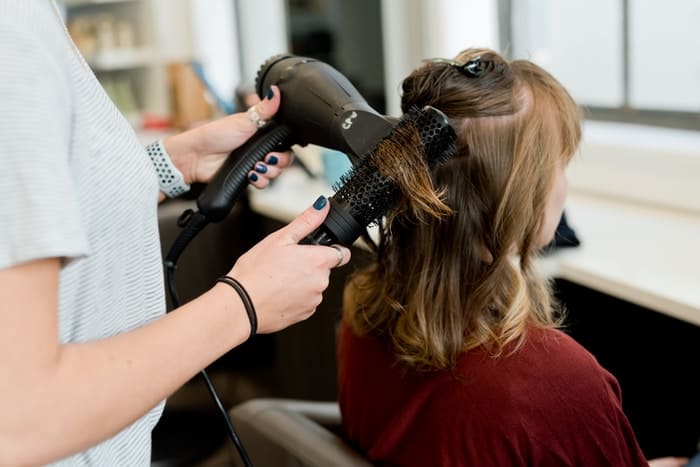
Use the Right Products for Your Specific Hair Type
If you have coily or curly hair, this will be more prone to lack of moisture. You can use a serum to intensely hydrate and condition any parched coils or curls. You just need to apply the serum to the ends and tame any frizz while deeply conditioning at the same time.
When you have wavy hair, but you are suffering from curled ends, it might be the result of using the incorrect type of products. Make sure you use hair care products specially made for wavy hair and stay away from any product that is too heavy.
Read This Next:
Take Vitamin Supplements
When you suspect that you are suffering from some hormonal imbalances that make the hair curl at the ends, you might want to visit your doctor to discuss if you can take some vitamin supplements.
Thyroid issues and iron deficiencies can affect the health of your hair as well as vitamin B12 and D deficiencies. You can manage this in several ways, but it is still best to consult your doctor.
Manage Climate Changes
There are several steps to take to address climate-related hair problems.
If you are living in a dry climate area and you suffer from damaged dehydrated hair, you can use conditioning, moisturizing, or hydrating products to manage it.
Apply a deep conditioner regularly and use hair oil to seal the ends of the hair.
For humid climates, you can use an anti-humidity spray or cream to address any frizz as a result of humidity.
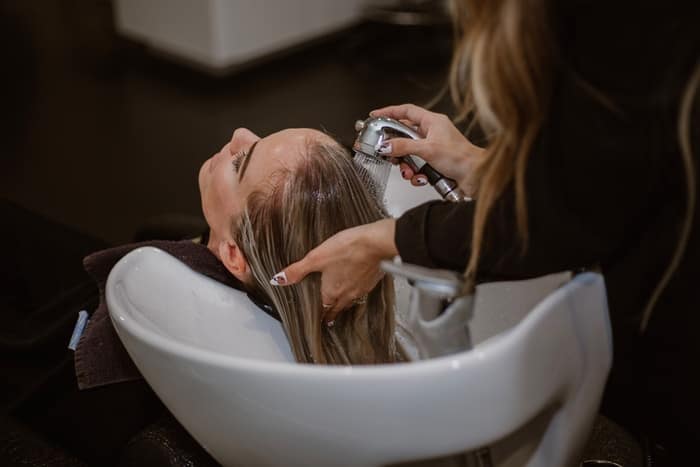
Manage Hair Damages
Hair damages are the major reasons why hair curls at the ends. The best method to manage these is to use hair masks, serums, or deep conditioners regularly.
It is especially important if you color or bleach your hair often, and if you also regularly use heat styling tools. Hair conditioning treatments, serums, and masks will bring your damaged locks back to life, nourish them from within and boost their hydration levels.
Use these tips and say goodbye to hair curling at the ends!


